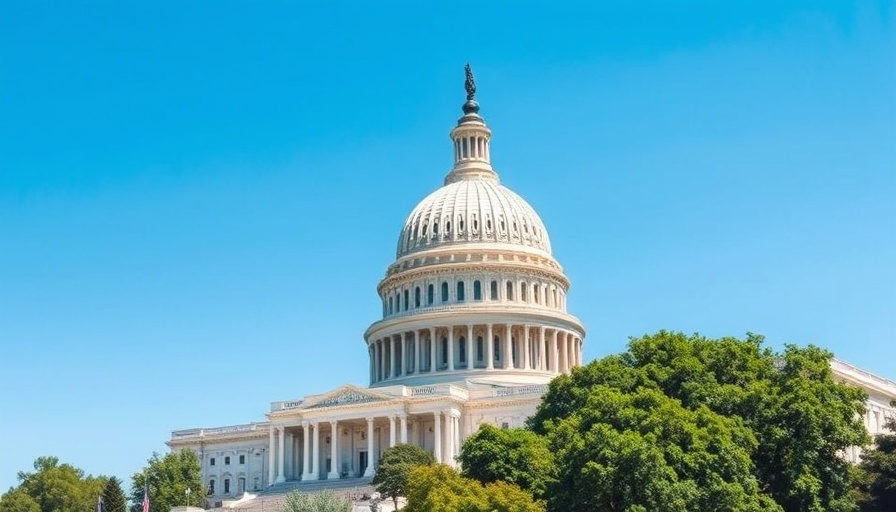
A New Era of Senate Norms: Republicans Push the Envelope
In an unprecedented shift, Senate Republicans are altering fundamental fiscal rules in a move that not only challenges long-standing Senate traditions but also redefines how tax cuts are evaluated in the federal budget. On Sunday, June 29, 2025, a bold plan was initiated to change the way tax policy impacts forthcoming legislation, allowing them to push through their agenda without requiring bipartisan support.
Understanding the Reckoning with Reconciliation
The strategy utilizes a legislative process known as reconciliation, which permits passage with a mere simple majority of 51 votes instead of the typically necessary 60 to overcome a filibuster. Historically, this has allowed party members to advance significant policy shifts while circumventing opposition, but it has been constrained by rules designed to prevent excessive deficit spending.
The most critical aspect of these rules is that cost-increasing policies can only be approved for a maximum duration of ten years. After this period, programs that add to the deficit are expected to expire to maintain some semblance of fiscal responsibility. Yet, Republicans argue they are justified in pursuing a different accounting method that essentially discounts the anticipated costs of extending previous tax cuts, allowing them greater financial leeway.
The Accounting Gimmick Explained
By asserting that the $3.8 trillion cost associated with extending the 2017 tax cuts should factor in as zero, due to the notion that these cuts are already anticipated in current fiscal forecasts, Republicans are preparing to reclassify budgetary impacts in their favor. This approach, termed an “accounting gimmick” by critics, disregards the implications it may have on fiscal health and long-term economic strategy.
This innovative reasoning poses a significant question: how will this affect American taxpayers moving forward? As the pursuit of permanent tax cuts gains traction despite fiscal warnings, the dialogue around American financial stability is more critical than ever.
Potential Implications of the GOP's Plan
By green-lighting this reinterpretation of how tax policies factor into budget calculations, Senate Republicans are not only affecting immediate tax laws but also setting a precarious precedent for future financial legislation. What begins as a toolbox designed to facilitate easier passage of laws may inadvertently lead to more aggressive measures, amplifying partisan divisions in a realm historically reliant on negotiation and compromise.
Moreover, the long-term effects could extend far beyond just the Republican agenda; such drastic shifts in accounting could invite subsequent minorities to employ similar tactics, thus accelerating the departure from traditional bipartisanship and collaborative governance.
Raising Questions About Fiscal Responsibility
The discourse surrounding these changes highlights a vital concern regarding fiscal responsibility in Washington. With various economic experts warning about the potential repercussions of unregulated deficit increases, the emphasis should shift toward sustainable financial policies rather than short-term political gains.
For many citizens, these reforms spark broader conversations about economic literacy and accountability in government spending as taxpayers evaluate how these decisions impact their everyday lives.
Looking Ahead: The Path of Future Legislation
As the Senate gears up for debates surrounding this bill, public scrutiny will be essential in holding lawmakers accountable. The engagement of voters may well influence the legislative process, reinforcing the importance of transparency in governance. How will individuals and communities respond to this perceived erosion of fiscal discipline?
Calls to Action: Engaging with the Changes
It’s time for citizens to leverage their voices regarding these evolving norms in the Senate. Engaging in legislative discussions, understanding fiscal policies, and making opinions heard can drive the future of governance. Legislative changes can often seem remote, but public opinion has been shown to steer the course of policy formation significantly.
 Add Row
Add Row  Add
Add 




 Add Row
Add Row  Add
Add 

Write A Comment